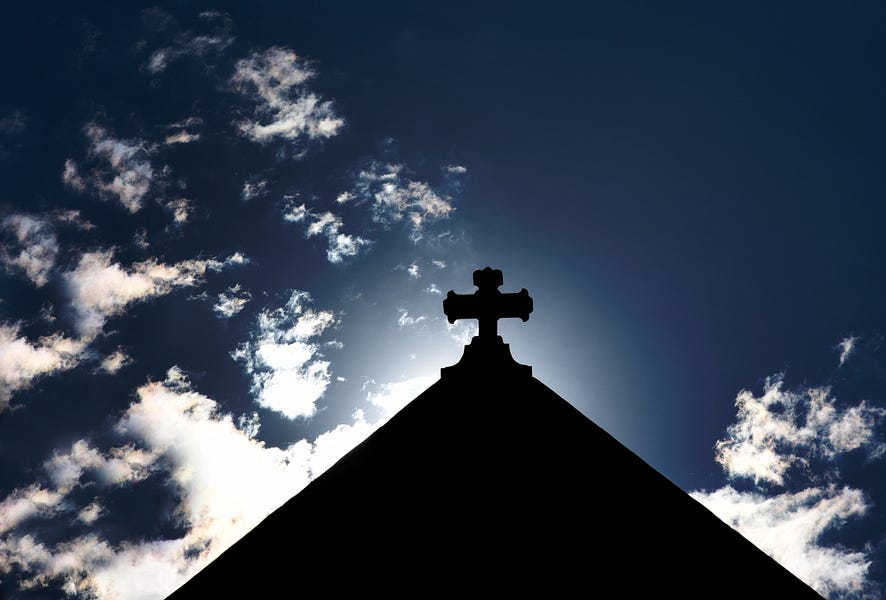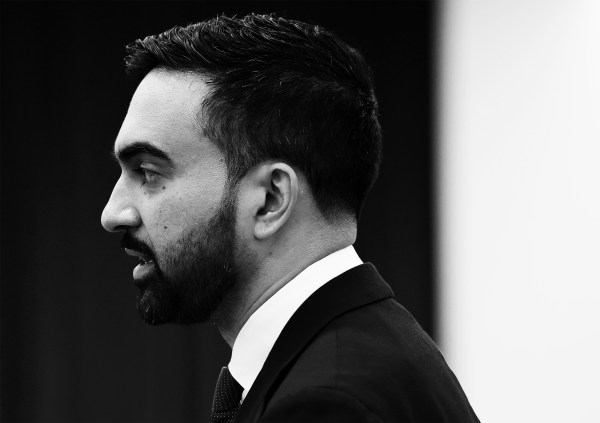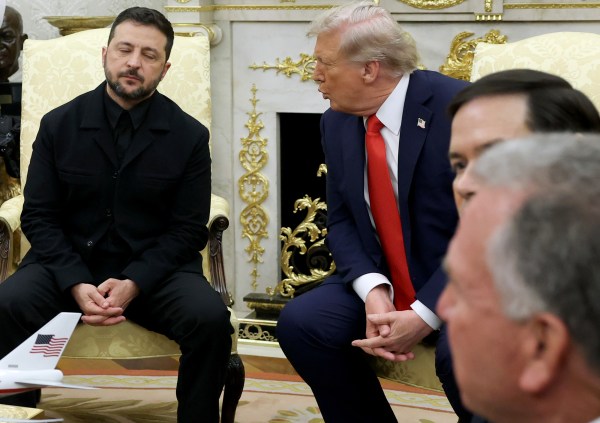Back when I was in the religious liberty litigation business, I’d sometimes give my clients—especially my college student clients—a little talk that went something like this: “Your lawsuit is likely going to get more media attention than anything that your group does for the next 10 years, but that gets the importance of this moment exactly backward. Winning your religious freedom and maintaining your presence on campus is far less important than what you’ll do with that liberty. Your witness will ultimately define you on this campus, not your rights.”
I’ve thought often about those talks in recent years. The reason is simple—Christian liberty is largely secure, yet Christian fear is harming the Christian witness and damaging the culture of the nation we love.
A moment’s historical reflection should demonstrate that few political and legal movements have been more successful in the last 40 years than Christian conservatism. Through a combination of activism and litigation, Christian conservatives have not only achieved veto power over the electoral fortunes of one of America’s two great political parties, they’ve erected a veritable thicket of laws that protect religious expression in public (and even private) spheres.
Court decision after court decision has held that churches and religious organizations enjoy enormous autonomy (greater autonomy than secular organizations) in hiring and firing employees, and that autonomy is nearly absolute when it comes to hiring and firing ministerial employees. They enjoy rights of equal access with secular organizations to public facilities and (in some cases) taxpayer funding. Employees of private companies enjoy broad federal, state, and local protections against religious discrimination. Many of these freedoms aren’t protected by fragile 5-4 Supreme Court majorities. Instead, they rest on precedents decided by 7-2 and even 9-0 margins.
At the federal level, the Religious Freedom Restoration Act secures religious Americans extraordinary protection against infringements on religious liberty through federal law. A total of 21 states have enacted similar provisions.
Decades of patient pro-life activism (protected by many of the court precedents referred to above) have resulted in hundreds of pro-life laws in states across the nation—including 288 laws passed between 2011 and 2015 alone—and are drivers in the extraordinary drop in the American abortion rate. The abortion rate is now lower than it was before Roe was decided, when abortion was actually illegal in multiple American jurisdictions.
Yes, I know there are challenges. I know that threats to religious conscience exist, especially for Christian institutions that engage in heavily regulated professions like foster care, adoption services, and health care. But it’s hard to think of a single developed country in the entire world that more robustly protects religious freedom than the United States of America.
Yet in spite of this liberty and power, all too many Christians are afraid. Once again a time of social upheaval is elevating illiberal voices, and those illiberal voices have disproportionate power in America’s leading cultural, educational, and corporate institutions. Right alongside an extraordinarily welcome wave of reflection and anguish about the reality and legacy of American racism is a disturbing wave of intolerance for dissent from the most radical and divisive anti-racist ideologies.
In a searing newsletter published Friday, progressive journalist Matt Taibibi penned a cri de coeur against the illiberal left:
On the other side of the political aisle, among self-described liberals, we’re watching an intellectual revolution. It feels liberating to say after years of tiptoeing around the fact, but the American left has lost its mind. It’s become a cowardly mob of upper-class social media addicts, Twitter Robespierres who move from discipline to discipline torching reputations and jobs with breathtaking casualness.
The leaders of this new movement are replacing traditional liberal beliefs about tolerance, free inquiry, and even racial harmony with ideas so toxic and unattractive that they eschew debate, moving straight to shaming, threats, and intimidation. They are counting on the guilt-ridden, self-flagellating nature of traditional American progressives, who will not stand up for themselves, and will walk to the Razor voluntarily.
They’ve conned organization after organization into empowering panels to search out thoughtcrime, and it’s established now that anything can be an offense, from a UCLA professor placed under investigation for reading Martin Luther King’s “Letter from a Birmingham Jail” out loud to a data scientist fired* from a research firm for — get this — retweeting an academic study suggesting nonviolent protests may be more politically effective than violent ones!
Writing in New York magazine, Andrew Sullivan asked “Is there still room for debate?”:
In this manic, Manichean world you’re not even given the space to say nothing. “White Silence = Violence” is a slogan chanted and displayed in every one of these marches. It’s very reminiscent of totalitarian states where you have to compete to broadcast your fealty to the cause. In these past two weeks, if you didn’t put up on Instagram or Facebook some kind of slogan or symbol displaying your wokeness, you were instantly suspect. The cultishness of this can be seen in the way people are actually cutting off contact with their own families if they don’t awaken and see the truth and repeat its formulae. Ibram X. Kendi insists that there is no room in our society for neutrality or reticence. If you are not doing “antiracist work” you are ipso facto a racist. By “antiracist work” he means fully accepting his version of human society and American history, integrating it into your own life, confessing your own racism, and publicly voicing your continued support.
None of this is particularly new. “Woke” culture has spawned years of cancellations, terminations, and boycotts. It has also created a sense of pervasive fear in Christian communities. I’ve heard from friends even in deep-red communities such as Franklin, Tennessee, who are afraid to share their thoughts on social media for fear of corporate reprisal.
Sullivan is correct that intolerance is very real, but he’s wrong that present conditions are “very reminiscent of totalitarian states.” There is a substantial difference between state censorship—enforced at gunpoint—and the professional and social intolerance that dominates illiberal institutions. The East German Stasi would leave your body in a ditch. That’s a different universe of oppression compared to the harms woke America inflicts on its victims today..
Yet excessive fear reigns. My friend Rod Dreher’s influential blog has become a clearing-house for frightened Christian professionals to (anonymously) express their deep fears. Comment after comment will begin with the notation that the authors feels they can’t identify themselves:
“I am a full professor in the humanities at a major private university. Everyone on this blog would likely recognize my name if I published it here.”
“From a reader I know personally, and who correctly says she cannot identify herself: ‘Very few of us have practical freedom of speech anymore. Sure, the constitution lets us say it, but what good is that if it gets us mobbed?’”
I get correspondence like this all the time. And expressions of fear like this aren’t all that new. I’ll never forget the professor who spoke to me in whispers about his faith lest anyone overhear and threaten his tenure bid. I remember an extraordinary case in Georgia where the university Christian community remained largely silent as a fellow believer faced racism, rape threats, and death threats for defending religious freedom on campus.
As a matter of law, Christians are free. As a matter of fact, in many contexts across the country, Christians are afraid—and many of the people who are most in the grips of fear are those individuals who have thoughtful and reasonable things to say.
Rod points out that millions of Americans, repulsed by “wishy-washy” religiosity are seeking purpose in the “strong gods” on the illiberal left and right. It’s riots vs. crackdowns. It’s left-wing intolerance versus right-wing aggression. The reality hearkens back to the lines from W.B. Yeats poem, “The Second Coming,” that I wrote about two weeks ago: “The best lack all conviction, while the worst are full of passionate intensity.”
The fear of the Christian “best” is harming this nation. Millions turned to Donald Trump to fight for them, forgetting that a church that is supposed to be a source of salt and light should not empower malice and lies. The result, in Gen. James Mattis’s words, is “the first president in my lifetime who does not try to unite the American people—does not even pretend to try.” Christians put in power—and sustained in power—precisely the wrong man for this perilous moment.
Others, in spite of Christ’s admonition to deny yourself and take up your cross to follow Him, are not willing to risk tweetings when the apostles braved beatings. Their jobs are too precious to risk. Though they enjoy greater freedom from actual censorship than arguably any people in the history of the planet, self-censorship suffices to drive too many thoughtful Christian voices from the academy, the boardroom, and the office. But shrinking back in the face of challenges to career and reputation communicates fear, not faith, to a broken world. While the fearful Christian would never say this out loud, they’re functionally treating the “strong gods” of the partisan political moment as greater and more powerful than the God of the universe they seek to serve.
How do you respond to those “strong gods”? By showing them to be weak. Speak in the face of fear, but speak in the way that God desires. He has given His people a mission statement: “He has told you, O man, what is good; and what does the Lord require of you but to do justice, and to love kindness, and to walk humbly with your God?” Each element is transformative. Each element is necessary. Any Christian movement that lacks justice, kindness, and humility is flawed.
America is at an important crossroads. There is a stirring in the American heart—men and women who were once hardened against the words and testimonies of their black fellow citizens are starting, at last, to listen. But extreme voices seek to hijack the debate, to take advantage of the moment to continue ripping this nation to shreds.
Are Christians prepared to be the instruments of justice, mercy, and humility that this nation so desperately needs? Not if they remain afraid. Not if in their timidity they continue to empower our worst voices or refuse to speak the truth with grace and conviction. Christians have immense liberty in this nation, but our witness ultimately defines us, not our rights, and presently the Christian witness is all too often a witness of fear.
A shameless plug …
My new book, Divided We Fall, is available for pre-order, and I just got my first review, from Publisher’s Weekly, and it’s good! The reviewer called the book an “incisive examination of contemporary political polarization” and said this “well-informed and often moving account provides an antidote to the ills of political partisanship.” I’m grateful! And I’d also be grateful if you pre-ordered the book, either at the Amazon link above or at Barnes & Noble (which needs your support.)
One last thing …
This new song, from Kristene DiMarco, has truly touched my heart. I hope it blesses you—in a time of uncertainty and fear, let Jesus rise:
Photograph by Robert Alexander/Getty Images.







Please note that we at The Dispatch hold ourselves, our work, and our commenters to a higher standard than other places on the internet. We welcome comments that foster genuine debate or discussion—including comments critical of us or our work—but responses that include ad hominem attacks on fellow Dispatch members or are intended to stoke fear and anger may be moderated.
With your membership, you only have the ability to comment on The Morning Dispatch articles. Consider upgrading to join the conversation everywhere.